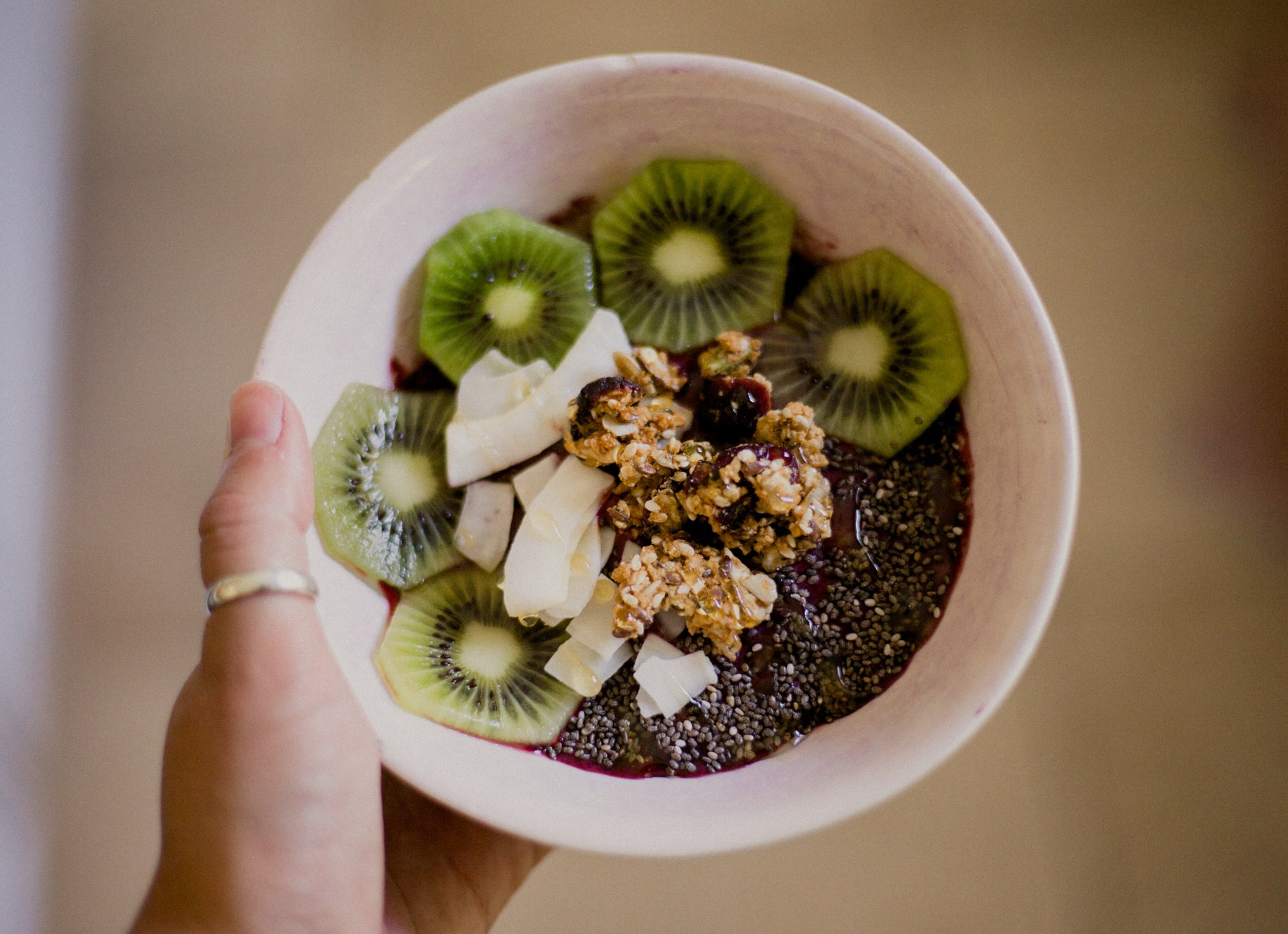Plant-based diets have taken the world by storm, and research shows they may be better for our planet and our health. Balanced whole-food plant-based diets are better for your heart, mental, and digestive health. Plant-based diets reduce your risk for many chronic illnesses, cancer, and overall mortality. The health of our planet also improves when eating a plant-based diet. According to UCLA research, a plant-based diet could increase the global food supply by 49% without expanding croplands and reduce carbon emissions, waste byproducts, and water use.
To put water use into context:
-
1 pound of beef needs 2000 and 8,000 gallons of water to produce
-
One gallon of cow’s milk needs 1950 gallons of water.
-
1 pound of Tofu requires 302 gallons of water to produce
-
1 pound of unprocessed oats requires 290 gallons of water to produce
-
1 pound of dried beans requires 606 gallons of water to produce
-
1 pound of peas requires 71 gallons of water to produce
When I say ‘plant-based,’ it doesn’t mean you have to go all vegan or all vegetarian. What ‘Plant-based’ means is highly individualized and means you mostly eat plants primarily. You could go plant-based for lunch and dinner or one meal a day or five days a week, meaning most of your diet comes from most plants.
A popular worry with plant-based diets is whether you get enough protein. A balanced plant-based diet can provide you with everything you need for optimal health, while an unbalanced diet can leave you depleted and ill. For World Vegan Day, we’re diving into types of plant-based proteins and the best way to meet your protein needs when going plant-based.
What is Protein?
Protein is needed for every cell and enzyme in your body, and it’s used in almost every function in your system. It helps you feel full, rebuilds and repairs body tissue, and maintains nitrogen balance in your body. The Institute of Medicine recommends that adults get a minimum of 0.8g of protein per kg of body weight per day. Protein requirements may be higher for athletes, older adults, pregnant women, and for other reasons. Vegans may also require more protein (1g/kg) because plant proteins are not always as digestible as isolated proteins or animal proteins. Since we easily get protein from grains, vegetables, beans, legumes, nuts, seeds, dairy, and meat, deficiency is almost nonexistent in the United States.
Proteins are made of chains of amino acids, and we need all of these amino acids for various functions in the body. Some amino acids can be made by the body, while others are not. The amino acids that are not made by the body are called essential amino acids, and we must get them from our diet. Nine essential amino acids include histidine, isoleucine, lysine, methionine, phenylalanine, threonine, tryptophan, and valine.
Types of Protein
Animal proteins (dairy, meat, eggs) contain all amino acids and are considered complete proteins. All plant foods contain at least some or all amino acids. Excellent plant sources of complete proteins include buckwheat, soybeans (tofu, tempeh, edamame), pumpkin seeds, hemp seeds, chia seeds, quinoa, mycoprotein (Quorn), and seitan. All Designer Wellness protein powders are designed to be complete proteins, whether from plant or animal sources.
Legumes tend to be lower in the essential amino acid methionine, while other plant proteins mostly lack the essential amino acid lysine. When following a plant-based diet, the most important thing is to eat a variety of plant proteins throughout the day to get all essential amino acids. The popular concept of eating “complementary proteins” together, aka “beans and rice,” to get your complete protein is not necessary. No magic protein elixir is created when combining two plant protein sources, and it’s just important to eat a variety of plant proteins throughout the day if not together.
Fitting it in
Designer Wellness plant-based protein powders include Designer Plant and Designer Soy. Both include complete high-quality plant-based proteins. Designer Plant gets 26g of complete protein from peas and sprouted brown rice, and designer Soy has 20g of 100% absorbable soy protein isolate. Adding one of our plant-based proteins into your day will quickly help you meet your daily protein quota. Here is a sample plant-based menu including 115g of protein.
Breakfast: Designer Plant smoothie with ½ cup of peaches, ½ banana, and ½ cup strawberries in 1 cup of pea protein milk ~ about 33g of protein
Snack: apple with 2 Tbsp peanut butter ~ about 7g of protein
Lunch: (1 cup) quinoa and (½ cup) chickpea salad with tomatoes, cucumber, spinach, parsley, and lemon vinaigrette dressing ~20g of protein
Snack: Designer Soy protein shake with almond milk and 1 cup of blueberries~ about 21g of protein
Dinner: tofu stir-fry with 1 cup of firm tofu, broccoli, ¼ cup peas, bell peppers, and ½ cup wild rice ~ about 34g of protein
Bottom Line
An overwhelming amount of research supports a primarily plant-based diet for health. Plant protein sources include healthy fats and disease-fighting phytonutrients, so it’s easy to see they reign supreme. As always, we need to look at the entire diet and the individual to know what's best for health. According to environmental research, if everyone in the United States gave up meat and dairy products on one or more days of the week, we would save the environment from thousands of tons of carbon emissions.
Whether you want to be a 9-5 vegan, 100% vegan, or one meal-a-day vegan, these tips will help you meet your nutritional needs on a plant-based diet. Designer Protein has a full line of products to help support your vegan or vegetarian diet. Check out our full line here.
By Ginger Cochran, MS, RDN, CDCES, CEP-ACSM
UCLA: The Case for Plant-Based
Havard: In the News > 2019 > Vegan diet can benefit both health and the environment
Water Footprint Of Food List By Adriane Marie • Updated: 02/19/22




